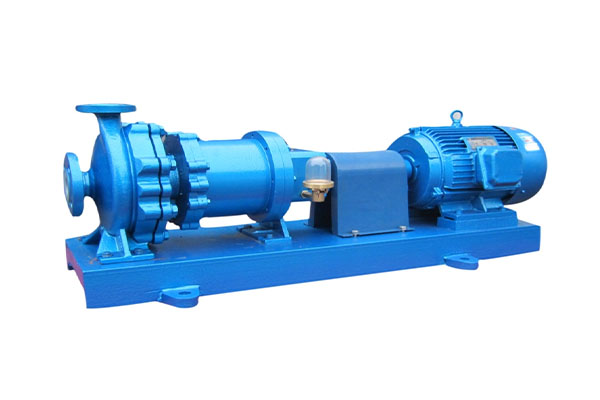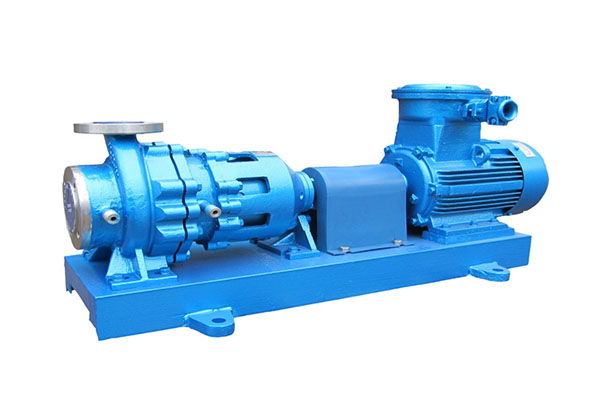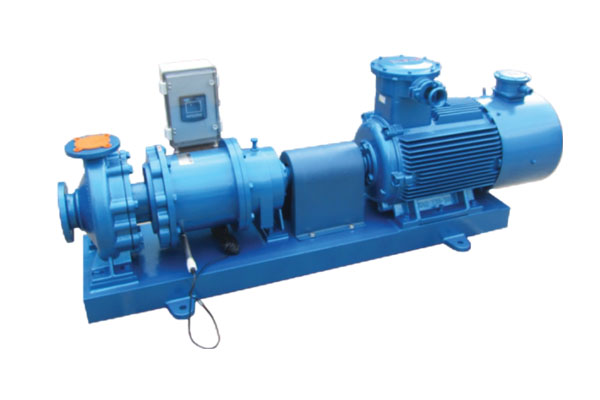How does the conveying medium of metal magnetic gear pump affect its performance?
Release Time : 2025-06-17
The performance of the metal magnetic gear pump is closely related to the medium being transported. Mediums with different characteristics will affect the operation of the pump in many aspects. Understanding these effects can help users better exert the efficiency of the pump.
The physical properties of the medium have a direct effect on the performance of the metal magnetic gear pump. The first is the viscosity of the medium. If the viscosity of the medium is too high, the resistance of the gear during rotation will increase significantly, just like stirring in thick syrup is much more laborious than in clear water. This will cause the pump to consume more energy during operation, increase the motor load, and even reduce the speed. At the same time, high-viscosity media will also reduce the flow and head of the pump because the medium does not flow smoothly and is difficult to be transported efficiently. On the contrary, media with too low viscosity may cause increased leakage in the pump, which also affects the stability of flow and head.
The density of the medium should not be ignored. When transporting a medium with a higher density, the pump needs to overcome a greater gravity to lift and transport the medium, which will exert greater pressure on the mechanical parts of the pump, such as gears, bearings, etc. If high-density media are transported for a long time, the wear of these parts will accelerate, shortening the service life of the pump. Moreover, if the motor power of the pump does not match the density of the medium, overload operation may occur, posing a safety hazard.
The corrosiveness of the medium is an important factor affecting the performance of the metal magnetic gear pump. If the medium being transported is corrosive, it will corrode the metal parts of the pump, such as gears and pump bodies. Over time, the metal surface is corroded, the size and shape of the parts change, and the gaps between the parts that were originally precisely matched become larger, resulting in a decrease in the volumetric efficiency of the pump, and a decrease in flow and head. More seriously, corrosion may cause perforation and rupture of parts, causing medium leakage, destroying the pump's leak-free delivery advantage, and even causing safety and environmental problems.
The solid particles contained in the medium will cause abrasive effects on the pump. Even if the structural design of the metal magnetic gear pump is relatively precise, the presence of solid particles will continuously rub the gear surface, the inner wall of the pump cavity, and other parts like sandpaper during the rotation of the gear. These particles may be embedded in the metal surface, causing scratches and pits, which not only reduces the mechanical efficiency of the pump, but may also cause the parts to get stuck, making the pump unable to operate normally. At the same time, metal debris produced by wear may also enter the medium, contaminating the conveying medium and affecting the process flow.
The temperature of the medium will also affect the performance of the metal magnetic gear pump. High-temperature medium will cause the metal parts in the pump to expand, the gap between the originally suitable parts will become smaller, the friction between the parts will increase, the running resistance will increase, and the energy consumption will rise. Moreover, high temperature may also affect the performance of the magnetic material in the magnetic transmission structure, reduce the magnetic strength, and cause unstable transmission. Conversely, low-temperature medium may increase the viscosity of the medium and deteriorate the fluidity, which will also affect the pump's delivery efficiency.
The gasification characteristics of the medium also need to be paid attention to. When the transported medium is easy to gasify under the operating conditions of the pump, such as when the pressure is reduced or the temperature is increased, bubbles will be generated, and cavitation will occur. When cavitation occurs, the bubbles burst in the high-pressure area, generating a strong impact force, repeatedly impacting the surface of the pump components, causing fatigue and peeling of the metal surface, seriously affecting the performance and service life of the pump. At the same time, cavitation will also cause the flow and head of the pump to fluctuate, and generate noise and vibration.
The medium transported by the metal magnetic gear pump affects the performance of the pump from many aspects such as physical properties, corrosiveness, solid particle content, temperature and gasification characteristics. When using the metal magnetic gear pump, you must fully understand the characteristics of the conveyed medium, reasonably select and use the pump, and take necessary protective measures to ensure the stable and efficient operation of the pump and play its due role.






